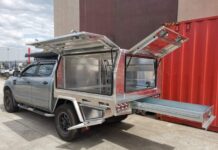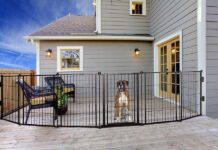When it comes to keeping your home warm and comfortable during the colder months, having the right heating appliances is crucial. With so many options available, it can be overwhelming to choose the right one for your home.
Your heating systems typically contribute to 29% of your total utility bill, according to the Department of Energy. Hence, it is important to optimize energy usage for your heating device and choose the right one for your home.
In this guide, we’ll take a closer look at the most common heating appliances used in homes in the US and what you should consider when making your choice. From furnaces and boilers to heat pumps and electric baseboard heaters, whether you’re building a new home or looking to replace an outdated heating system, this guide will provide you with the information you need to make the best choice for your home and budget.
1. Water Heater
A water heater heats water for use in a home or building. It uses electricity, natural gas, propane, oil, or solar energy as a power source to heat the water. The heated water is then stored in a tank until it is needed. The stored hot water can be used for various purposes, such as bathing, cooking, cleaning, and laundry.
A water heater not working in winter can be a traumatic experience for you. It is important to check why your water heater is not working and what to do in that case. You should browse reliable online resources to understand how to go about repairing a water heater. Do ask a professional plumber to check your water heater if you are unable to resolve the issue on your own.
The water heater can be of different types, such as a storage-tank water heater, tankless water heater, heat pump water heater, and solar water heater. Consider tankless water heaters, which heat water on demand rather than keeping a large tank of water hot at all times. They can be more energy-efficient than traditional storage tank water heaters.
When buying an energy-efficient water heater, look for models with high Energy Factor or EF ratings. The higher the rating, the more efficient the water heater is at converting energy into heat. Look for models with a rating of at least 0.8 EF for electric water heaters and 0.67 for gas water heaters.
A professional plumber should size and install the water heater to ensure it is properly sized for your home and that the installation is done correctly.
2. Furnace
A furnace uses natural gas, propane, or oil as a fuel source to heat air, which is then distributed throughout the home using ductwork. Currently, 48% of homes in the US use gas for their heating needs, and 38% use electricity, according to an article by Fox News. You should decide on the fuel source and the feasibility of installing it in your home before buying your furnace.
When buying an energy-efficient furnace, opt for models with high AFUE or Annual Fuel Utilization Efficiency ratings. Look for models with a rating of at least 90% AFUE.
A variable-speed blower motor and a two-stage or modulating gas valve can also increase the efficiency of the furnace. Have a professional HVAC contractor size and install the furnace to ensure it is properly sized for your home and that the installation is done correctly.
3. Boiler
A boiler uses natural gas, propane, or oil as a fuel source to heat water, which is then distributed throughout the home to radiators or baseboard heaters.
When buying an energy-efficient boiler, look for models with high AFUE (Annual Fuel Utilization Efficiency) ratings. Consider a condensing boiler that uses the heat from the combustion gases to preheat the water before it enters the heat exchanger, improving efficiency.
The usage of boilers in the USA is growing steadily. A report from Strait Research estimates that the boiler industry will grow at a CAGR of 4% in the period of 2021 to 2031, taking 2022 as the base year.
4. Heat Pump
A heat pump is a heating and cooling appliance that uses electricity to transfer heat from the air or ground outside into the home. It is particularly useful in milder climates.
When buying an energy-efficient heat pump, look for models with a high Seasonal Energy Efficiency Ratio or SEER and Heating Seasonal Performance Factor or HSPF ratings. Look for models with a rating of at least 14 SEER and 8 HSPF.
Consider a dual-fuel heat pump, which combines the efficiency of an electric heat pump with the reliability of a gas furnace.
5. Electric Baseboard Heaters
Electric baseboard heaters are used as a primary or supplementary heat source in homes in the US. They use electricity to heat a room or area of the home.
When buying an energy-efficient electric baseboard heater, look for models with high-efficiency ratings. Look for models with a rating of at least 90% efficiency. Consider using a thermostat with an electric baseboard heater to control the temperature and minimize energy usage.
Take into consideration the size of your home, your budget, and the energy source available to you when buying a heating appliance. Furnaces and boilers are great options for homes that use natural gas or propane as a fuel source, while heat pumps are ideal for milder climates. Electric baseboard heaters are great for smaller spaces and can be used as a primary or supplementary heat source.
When making your decision, do have a professional HVAC contractor size and install the heating appliance to ensure it is properly sized for your home and that the installation is done correctly.



































































